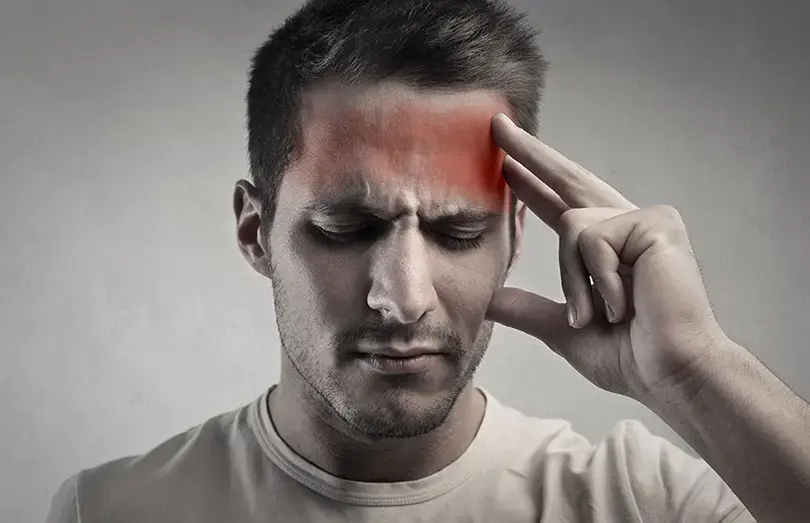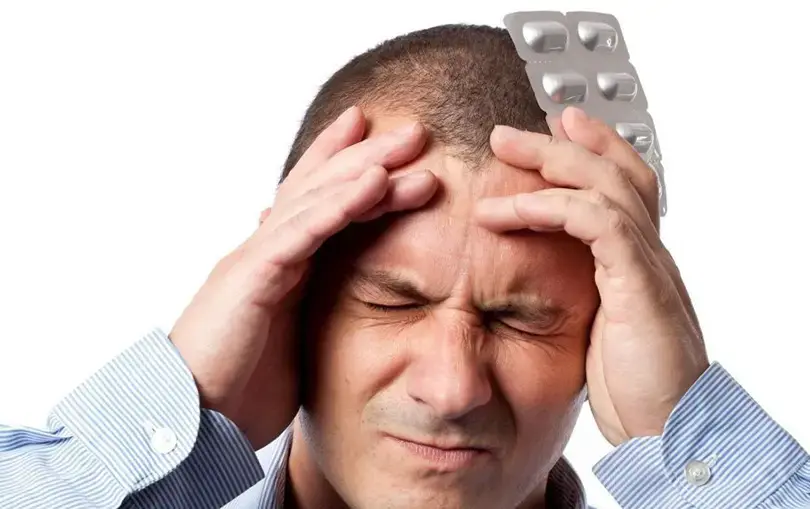A headache always shows up at the wrong moment. It interrupts your workflow, breaks your focus, ruins your plans, and sometimes forces you to put life on pause. Many people try to push through the pain or reach for random remedies, but real relief doesn’t always follow.
To deal with a headache effectively, it helps to understand what’s actually causing it. Below are five of the most common triggers and the first steps you can take to feel better. The tone is simple, practical, and focused on what really works in everyday life.
1. Tension Headache: When Stress and Overwork Build Up Quietly
A tension headache is the most common type. It usually appears after hours at a computer, long periods sitting in the same position, or days filled with stress and tight deadlines.
The pain feels dull and squeezing, like a band tightening around your head. It often spreads from the neck toward the temples and gets stronger by evening.
What helps
• Take a short break — even five minutes can make a difference.
• Gently stretch your neck and shoulders.
• Stand up, walk around, breathe deeply.
• Step outside for fresh air if you can.
A simple reset reduces muscle tension and improves circulation — two key factors behind this type of headache.
2. Hormonal Headache: When Your Body Follows Its Natural Cycles
Many women experience headaches linked to hormonal changes, especially in the days before a period or at the start of a cycle.
This happens because estrogen and progesterone levels drop, and the body reacts. The pain is often pulsing and becomes stronger with bright light, strong smells, or active movement. Fatigue and irritability may join in.
What helps
• Stick to a steady daily routine.
• Give yourself more rest.
• Take a warm shower.
• Rest in a quiet, dim room when the pain gets intense.
• Avoid unnecessary physical overload.
A calmer rhythm helps your body move through hormonal shifts with less discomfort.
3. Hunger and Dehydration Headache: A Simple but Powerful Signal
Your body notices the lack of food or water long before you do. Skipping breakfast, delaying meals, or drinking too little can trigger a headache surprisingly fast.
When blood sugar drops, your brain doesn’t get enough energy. When you’re dehydrated, tissues slightly shrink — and this can cause pain, usually in the forehead. It may come with dizziness, low energy, or irritability.

What helps
• Eat something light but nourishing: vegetables, fruit, yogurt, whole-grain snacks.
• Don’t skip meals — especially in the morning.
• Maintain a steady water intake: about 30 ml of water per kilogram of body weight per day.
Regular meals and hydration prevent this type of headache better than any pill.
4. Allergy-Related Headache: A Hidden Trigger Many People Overlook
Allergies don’t always cause headaches directly, but they often set off a chain reaction. Allergens inflame the nasal lining, cause swelling, and make breathing harder. Pressure builds in the sinus area — and a headache follows.
This pain usually appears in the forehead, nose area, or behind the eyes. Dry indoor air and dust can make it worse.
What helps
• Use a humidifier to keep the air comfortable.
• Take a warm shower.
• Rinse your nose with a saline solution.
• Limit exposure to known allergens whenever possible.
Relieving sinus pressure often reduces the headache quickly.
5. When to Use Pain Relief — and What You Should Know First
If rest, hydration, and stretching don’t help, you can consider over-the-counter pain relief. But it’s important to:
• follow dosing guidelines;
• read instructions carefully;
• avoid taking painkillers too often;
• see a doctor if headaches become frequent or more intense over time.
Pain relievers can help in the moment, but they shouldn’t replace proper evaluation if the problem keeps returning.
When You Should Definitely See a Doctor
Get medical help if:
• the headache hits suddenly and severely;
• you notice trouble speaking, seeing, or coordinating movements;
• the pain lasts longer than three days;
• it keeps getting worse;
• common remedies stop working.
These signs may point to something that requires prompt attention.
A headache isn’t just discomfort — it’s a message from your body. And most of the time, that message has a clear reason behind it: stress, hormones, dehydration, hunger, or allergies. When you understand the trigger, you can respond faster and feel better sooner.
Listen to your body, take small steps toward balance, and you’ll move through your day with more clarity, energy, and confidence.






